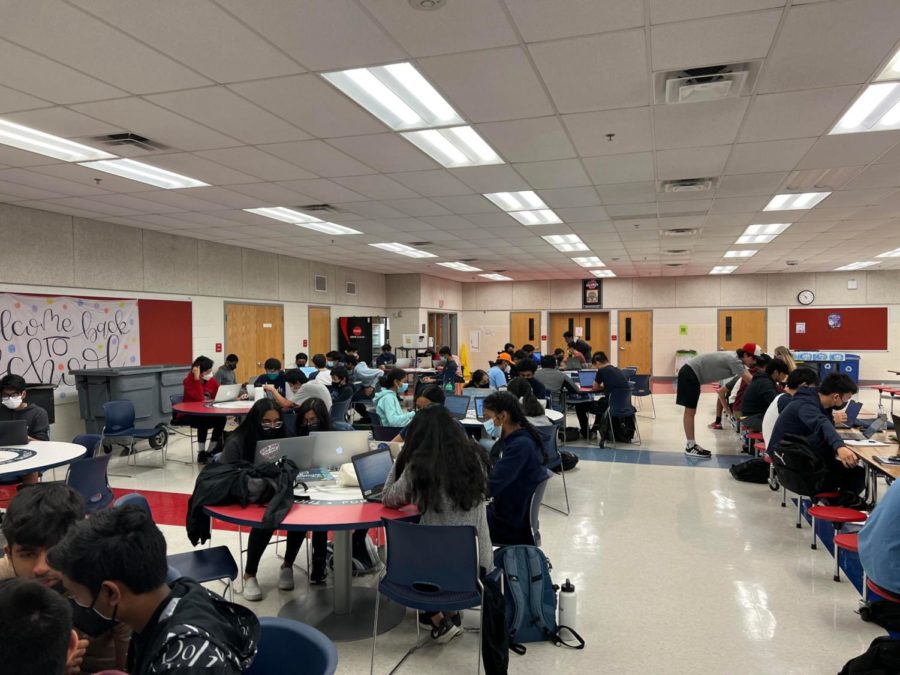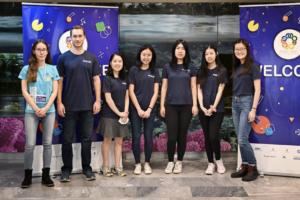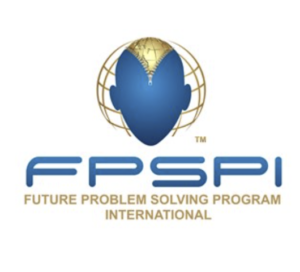Bioinformatics Society hosts BioCode competition
Students work on solving the competition’s coding problems in the school’s cafeteria.
April 25, 2022
For the first time since 2019, the Bioinformatics Society hosted their annual BioCode competition on April 23. The competition took place in-person at Jefferson, and welcomed students both from Jefferson and schools in the area.
Team “The Jigglypuff Attacked,” consisting of Faraz Mirza, Deccan Maniam, Brian Xu, and Manav Bharath, won first place in the advanced competition and took home a $160 grand prize.
The competition consisted of 10 bioinformatics-related coding problems of varying degrees of difficulty. The field was also split into three divisions to accommodate different experience levels of coding.
“We had a higher turnout than expected, which was great,” club Webmaster Sritan Motati said. “We had three divisions. The advanced division was for people taking AP CS or above, the beginners high school division was for people taking the Foundations of CS course or equivalent, and the middle school division was for middle school students.”
In addition to the main competition aspect, the event also had a beginners workshop and a guest speaker.
“We started off at 9 am with the opening ceremony and getting everyone checked in with things like Wifi. Then we had a pre-event workshop, which served as an introduction into bioinformatics, and was aimed at beginners who didn’t know much about the field,” Motati said. “In the middle of coding time, we had a guest speaker presentation from Associate Professor of bioinformatics of VCU [Dr. Peter Uetz].”
Motati stated that the overarching goal of BioCode was to drive interest towards the Bioinformatics Club and the bioinformatics field in general among students around the area.
“The goal of BioCode was to increase participation and interest in bioinformatics in middle and high school students. I believe we’re the only high school competition in the country to do this, and that’s our main goal: to increase interest in bioinformatics since it’s a field that isn’t as widely explored,” Motati said.
Bioinformatics Club treasurer Zarif Azher stated that outreach was a major part of BioCode’s successful completion.
“Our role was really to reach out to other schools to tell them ‘Hey, we’re hosting this competition, do you mind telling your students?’ We also wanted to advertise at TJ, and so we got announcements up on ION and posted flyers around and asked the science teachers to tell their students,” Azher said. “Our total registration was around 140, which we were really happy about, especially since we couldn’t start with the outreach as early as we would’ve liked.”
When asked about what the club looked to hopefully expand upon for the upcoming year’s event, Azher focused on potential collaborations with other clubs in order to widen the scope of the event and its purpose.
“We want to expand the event to include many more members of the TJ community,” Azher said. “For example, we’d love to collaborate with other technical clubs at TJ that are related to CS, machine learning, or biology in general. We want to talk about how their fields could apply to bioinformatics and vice versa.”









